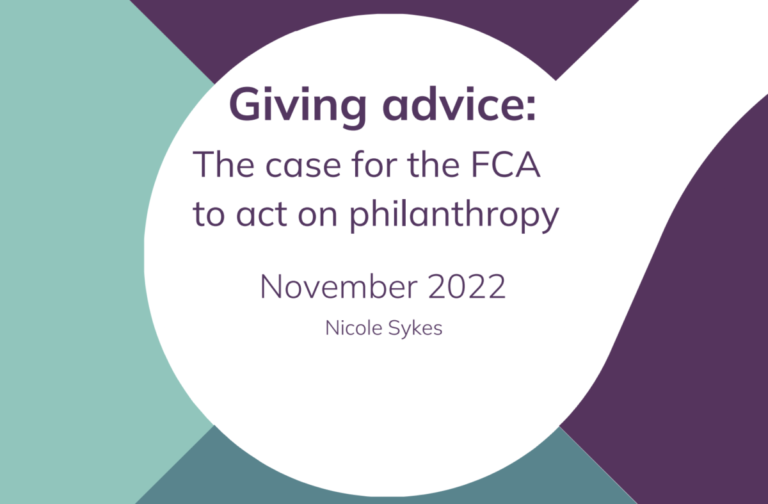More guidance from financial advisors could mean extra £1.4bn a year for charities

If every individual in the top 1% of earners currently donating less than 1% of their income raised their giving to that level, it could generate up to £1.4bn a year for charities, according to the Law Family Commission on Civil Society.
With its research also showing that the top 1% of earners cut their typical charity donation by a fifth between 2011-12 and 2018-19 despite incomes increasing, it believes greater action by financial advisors could help turn that decline around. As such, the Commission is calling on the FCA to make philanthropy advice training mandatory for financial advisors and introduce regulation to ensure it is discussed with clients.
Currently, philanthropy in the UK is worth close to £20 billion annually.
Advertisement
Research for the Law Family Commission on Civil Society, carried out by Pro Bono Economics, calls on the Financial Conduct Authority to take action to improve “the quality and the quantity of financial advice and guidance on philanthropy” in the UK, and makes a series of recommendations.
The new report, titled Giving advice: The case for the FCA to act on philanthropy, notes that aside from a handful of leaders in the field, such as Coutts and C. Hoare and Co., provision of high-quality philanthropy advice to all clients is not widespread. The report puts this down to several factors, including “lack of incentive”, “traditional mindsets and culture” and a “lack of regulatory clarity and leadership”.
In contrast, the report points to the US as an example of what good financial advice on philanthropy can achieve for society and financial services companies alike. It argues that a strong philanthropy offering enables firms to deepen their relationships with clients, meaning they provide better services, and puts them in a more competitive position for attracting new business from younger clients.
According to the report, in improving the quality and quantity of philanthropy advice, the FCA would be “fulfilling its duty to ensure that consumers receive the products, services and advice that they are requesting from the sector”, as well as advancing its own ESG ambitions. The report highlights four key recommendations for the FCA:
- Review the market for financial advice and guidance on philanthropy
- Demonstrate to the financial services sector the important role that philanthropy can play in unlocking public benefit
- Mandate education and training on philanthropy for relevant financial advisors
- Introduce sustainability requirements into suitability assessment, with an emphasis on philanthropy’s role in contributing to sustainability efforts
How the US compares
In the US, where financial advice on philanthropy is offered to clients as a matter of course, the benefits have been quantified. Research suggests that firms which offer their clients charitable planning have three times the median organic growth of those that do not, 1.3 times the median new money per investor, and significantly higher customer satisfaction scores.
The stronger philanthropy offering in the US has also directly contributed to the dramatic rise in donor-advised funds, which more than tripled between 2015 and 2020, hitting the 1 million mark during the pandemic. From assets of $159.8bn under management in these funds, $34.7bn was paid out in charitable grants in 2020, up from $14.2bn in 2015.
The report identifies eight “systemic, intertwined reasons” for the lack of high-quality financial advice on philanthropy in the UK. In addition to “lack of incentive”, “traditional mindsets and culture” and a “lack of regulatory clarity and leadership”, the report also cites the “organisational structure” of UK firms as a barrier, as well as a “poor understanding of products available”, “limited reporting of impact”, “poor understanding of social impact” and a “poor understanding of and availability of tax incentives”.
Nicole Sykes, Policy and Communications Director at Pro Bono Economics, said:
“Philanthropy is a major source of finance for charities in the UK, contributing £20 billion each year. But there is a real opportunity to grow this. With the country’s highest earners shown to be giving less to charity with each year, financial advisors have a huge role to play in turning this around, as the people who the wealthiest talk to about their money.
“As demonstrated in the US, widespread specialist philanthropy advice reaps enormous benefits for society and financial services firms alike, and we need to see the same in the UK. This requires leadership and stewardship from the FCA, which has the tools and influence required to help unlock far more of the true potential of philanthropy in the UK.”





